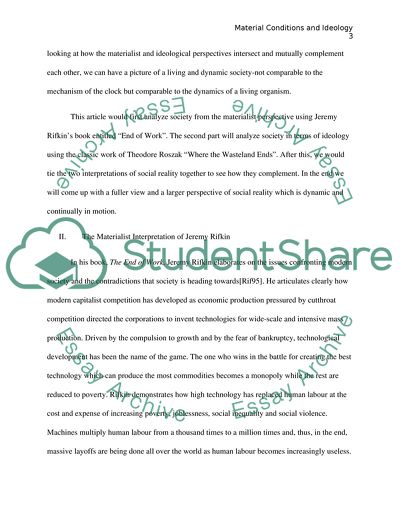Cite this document
(The Dynamics of the Material and Ideological Conditions in Society Book Report/Review Example | Topics and Well Written Essays - 1750 words, n.d.)
The Dynamics of the Material and Ideological Conditions in Society Book Report/Review Example | Topics and Well Written Essays - 1750 words. https://studentshare.org/sociology/1770003-material-and-ideological-perspectives
The Dynamics of the Material and Ideological Conditions in Society Book Report/Review Example | Topics and Well Written Essays - 1750 words. https://studentshare.org/sociology/1770003-material-and-ideological-perspectives
(The Dynamics of the Material and Ideological Conditions in Society Book Report/Review Example | Topics and Well Written Essays - 1750 Words)
The Dynamics of the Material and Ideological Conditions in Society Book Report/Review Example | Topics and Well Written Essays - 1750 Words. https://studentshare.org/sociology/1770003-material-and-ideological-perspectives.
The Dynamics of the Material and Ideological Conditions in Society Book Report/Review Example | Topics and Well Written Essays - 1750 Words. https://studentshare.org/sociology/1770003-material-and-ideological-perspectives.
“The Dynamics of the Material and Ideological Conditions in Society Book Report/Review Example | Topics and Well Written Essays - 1750 Words”. https://studentshare.org/sociology/1770003-material-and-ideological-perspectives.


